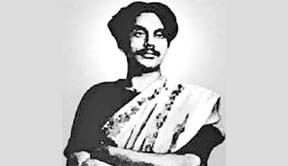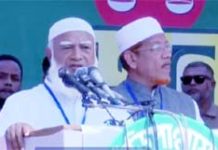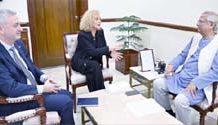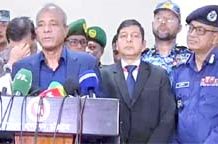C T Online Desk: The 125th birth anniversary of National Poet Kazi Nazrul Islam will be observed across the country today in a befitting manner through various programmes.
A poet, novelist, lyricist, composer, playwright and journalist, Nazrul, is one of the most celebrated cultural icons of the nation.
His fiery poems had made him a rebel poet and inspired the subjugated mass people to fight against oppression and injustice of the British colonial rule.
And the nation got inspirations from his poems and songs during the Liberation War and all democratic movements and struggles. Besides, Nazrul’s raga-based songs had developed their taste and encouraged them to experience the eternal beauty of love.
On the occasion of the birth anniversary of the National Poet, President Mohammed Shahabuddin and Prime Minister Sheikh Hasina issued separate messages, paying rich tributes to the polymath.
Like other years, the government and different cultural and socio-political organisations will arrange numerous programmes on the day to remember Kazi Nazrul Islam and celebrate his creations.
Dhaka University Vice-chancellor Prof Dr ASM Maksud Kamal, delegation of different political parties, family members of the poet, activists of different social and cultural organisations and people from all walks of life will place wreaths on the grave of the poet in DU campus.
Dhaka University (DU), Bangla Academy, Nazrul Institute, Bangladesh Jatiya Jadughar, Bangladesh Shilpakala Academy, Chhayanaut and many other organisations will arrange a series of programmes marking the day.
Bangladesh Television and other private television channels and Bangladesh Betar and FM radio stations will telecast and air special programmes to mark the occasion. Newspapers will publish special contents, highlighting the life and works of the national poet.
Born on 25 May 1899 at Churulia village in Burdwan (Bardhaman) district of West Bengal in undivided India, Nazrul had to discontinue his study at an early age to earn his living as his father died when he was only 11. Initially, he had joined a professional Leto troupe where he was introduced to the richness of Bangla and Sanskrit literature.
A year later, he resumed education and got enrolled in Matharun English School but dropped out from Class VI for poverty. This time, he worked with a Kabi Gaan troupe and subsequently took up a job at a bakery.












